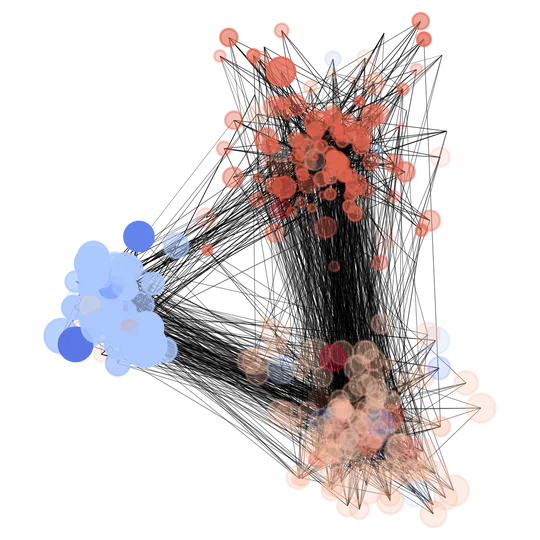About Me
Hola, I’m Miguel! 👋🏾 Currently, I am a PhD student in Network Science at the Central European University and the Complexity Science Hub in Vienna. I am very passionate about Complexity Science in general. In particular, I am interested in the data-driven modeling of social systems to study echo chambers, polarization, inequality, and other effects of human-Al co-evolution on social media.
In the past few years I completed my BSc in Physics back in Mexico (UNAM) and my MSc in Data Science at the Sapienza University of Rome. I also worked in the private sector as a Data Scientist at Vivanta. In my spare time I volunteer at NetPLACE. If you’re interested to give a talk, please reach out or fill the form on the website.
I like to expand my horizons and I am open to collaborate on topics that potentially can have a social impact and that can be addressed using the tools of Network Science, Machine Learning and Data Science. Don’t hesitate to write if you want to collaborate! 🤓
- Social Networks
- Computational Social Science
- Data-Driven Modeling of Complex Systems
PhD in Network Science
Central European University
MSc in Data Science
Sapienza Università di Roma
BSc in Physics
Universidad Nacional Autónoma de México
Experience
Data Scientist
VivantaMember of the founding team and lead data scientist. Among my tasks were developing Data Science & Machine Learning projects to gain insights from wearable data and performing successful onboarding for clients to the Vivanta environment.
Education
PhD in Network Science
Central European UniversityMember of the 2025 cohort of the Digital Innovation School (DIS) at the Complexity Science Hub. During my PhD, I intend to study the consequences of the human-AI co-evolution on social media.MSc in Data Science
Sapienza Università di RomaGraduated with a GPA of 110/110 with honors. During my master’s thesis I collaborated with the CENTAI Institute in Turin to study the demographics of individuals which engage with alt-right and conspiracy-oriented forums on Reddit.BSc in Physics
Universidad Nacional Autónoma de MéxicoGraduated with a GPA of 9.5/10. During my bachelor’s thesis I did a 3-month internship at the Complex Systems Institute of Ghent University, where I studied the formation of voting communities in the Eurovision Song Contest.
I enjoy making things. Here are a selection of academic projects that I have worked on over the years 👀


